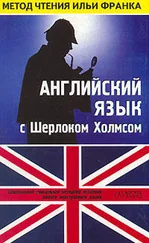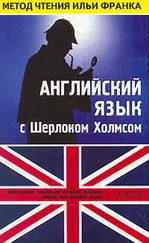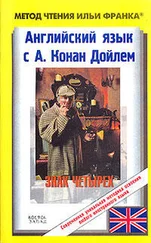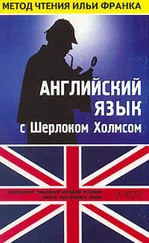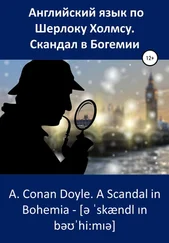circumstance ['s@:k@mst@ns], possible ['pOs@bl], whether ['weD@]
It was he who had been the first to discover the body of Sir Charles, and we had only his word for all the circumstances which led up to the old man's death. Was it possible that it was Barrymore after all whom we had seen in the cab in Regent Street? The beard might well have been the same. The cabman had described a somewhat shorter man, but such an impression might easily have been erroneous. How could I settle the point for ever? Obviously the first thing to do was to see the Grimpen postmaster, and find whether the test telegram had really been placed in Barrymore's own hands. Be the answer what it might, I should at least have something to report to Sherlock Holmes.
Sir Henry had numerous papers to examine after breakfast (после завтрака сэру Генри /нужно было/ изучить множество /деловых/ бумаг) , so that the time was propitious for my excursion (так что момент был подходящим для похода на почту: «благоприятным для моей экскурсии») . It was a pleasant walk of four miles along the edge of the moor (это была приятная четырехмильная прогулка вдоль кромки болот) , leading me at last to a small grey hamlet (которая привела меня = и я очутился наконец в маленькой скучной деревушке) , in which two larger buildings (в которой два строения, которые были больше остальных) , which proved to be the inn and the house of Dr. Mortimer (оказавшиеся гостиницей и домом доктора Мортимера) , stood high above the rest (возвышались над остальными) . The postmaster, who was also the village grocer (почтмейстер, оказавшийся к тому же местным: «деревенским» бакалейщиком) , had a clear recollection of the telegram (хорошо помнил /нашу/ телеграмму: «имел ясные воспоминания о телеграмме») .
examine [Ig'z&mIn], walk ['wO:k], hamlet ['h&mlIt]
Sir Henry had numerous papers to examine after breakfast, so that the time was propitious for my excursion. It was a pleasant walk of four miles along the edge of the moor, leading me at last to a small grey hamlet, in which two larger buildings, which proved to be the inn and the house of Dr. Mortimer, stood high above the rest. The postmaster, who was also the village grocer, had a clear recollection of the telegram.
"Certainly, sir," said he (конечно, сэр, — сказал он) , "I had the telegram delivered to Mr. Barrymore (телеграмма была доставлена мистеру Бэрримору; to have smth. + причастие прош. вр. — получить результат какого-либо действия /как следствие собственных усилий или деятельности других лиц/) exactly as directed (в точности, /как и было/ указано) ."
"Who delivered it (кто вручил: «доставил» ее) ?"
"My boy here (вот, мой сын) . James, you delivered that telegram to Mr. Barrymore at the Hall last week, did you not (Джеймс, ты доставил телеграмму мистеру Бэрримору в Баскервиль-холл на прошлой неделе, не так ли) ?"
"Yes, father, I delivered it (да, отец, я доставил ее) ."
"Into his own hands?" I asked (ему в собственные руки? — спросил я) .
"Well, he was up in the loft at the time (ну, в тот момент он был на чердаке) , so that I could not put it into his own hands (поэтому я не мог вручить ее ему лично) , but I gave it into Mrs. Barrymore's hands (но я отдал ее миссис Бэрримор) , and she promised to deliver it at once (и она обещала сразу же передать ее) ."
"Did you see Mr. Barrymore (/а/ ты видел мистера Бэрримора) ?"
"No, sir; I tell you he was in the loft (нет, сэр, говорю же вам, он был на чердаке) ."
"If you didn't see him (если ты его не видел) , how do you know he was in the loft (откуда тебе знать, /что/ он был на чердаке) ?"
"Well, surely his own wife ought to know where he is (ну, наверняка его собственная жена должна знать, где он находится) ," said the postmaster, testily (сказал почтмейстер с раздражением) . "Didn't he get the telegram (разве он не получил телеграммы) ? If there is any mistake (если произошла какая-то ошибка) it is for Mr. Barrymore himself to complain (пускай мистер Бэрримор сам пожалуется) ."
exactly [Ig'z&ktlI], once [wVns], know [n@u]
"Certainly, sir," said he, "I had the telegram delivered to Mr. Barrymore exactly as directed."
"Who delivered it?"
"My boy here. James, you delivered that telegram to Mr. Barrymore at the Hall last week, did you not?"
"Yes, father, I delivered it."
"Into his own hands?" I asked.
"Well, he was up in the loft at the time, so that I could not put it into his own hands, but I gave it into Mrs. Barrymore's hands, and she promised to deliver it at once."
"Did you see Mr. Barrymore?"
"No, sir; I tell you he was in the loft."
"If you didn't see him, how do you know he was in the loft?"
"Well, surely his own wife ought to know where he is," said the postmaster, testily. "Didn't he get the telegram? If there is any mistake it is for Mr. Barrymore himself to complain."
It seemed hopeless to pursue the inquiry any farther (казалось бесполезным: «безнадежным» продолжать расспросы дальше) , but it was clear that in spite of Holmes's ruse (но было очевидно, что, несмотря на уловку Холмса) we had no proof that Barrymore had not been in London all the time (у нас нет доказательств, что Бэрримор не был в Лондоне все это время) . Suppose that it were so (предположим, что это было так) — suppose that the same man had been the last (предположим, что этот самый человек был последним) who had seen Sir Charles alive (кто видел сэра Чарльза живым) , and the first to dog the new heir (и первым, кто выследил его наследника) when he returned to England (когда тот приехал: «вернулся» в Англию) . What then (что тогда) ? Was he the agent of others (был ли он агентом других) , or had he some sinister design of his own (или у него есть собственный злой умысел) ? What interest could he have in persecuting the Baskerville family (какой может быть у него интерес в преследовании рода Баскервилей) ? I thought of the strange warning (я подумал о странном предостережении; to warn — предостерегать) clipped out of the leading article of the Times (вырезанным из передовицы "Таймс") . Was that his work (было это его работой) , or was it possibly the doing of someone (или, возможно, это сделал некто) who was bent upon counteracting his schemes (прикладывающий усилия, чтобы помешать его планам; to counteract — препятствовать, противодействовать; to be bent on/upon — устремлять свои помыслы на что-либо; стремиться к чему-либо; bent — склоненный; склонный; to bend — сгибать/ся/, склонять/ся/) ?
Читать дальше


